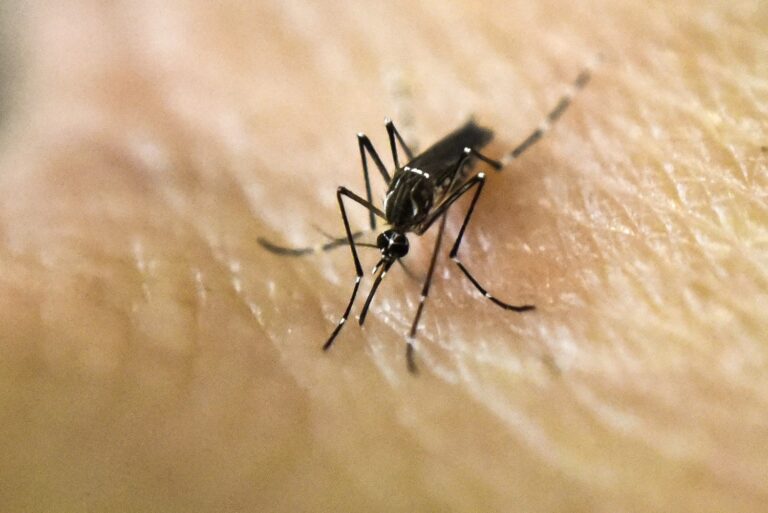A dengue fever alert has been issued in the Florida Keys following two confirmed cases of the mosquito-borne disease.
The local warning comes a week after the Centers for Disease Control and Prevention issued a national advisory about the increased risk of dengue virus infections in the United States.
Although most of the dengue cases reported in the states so far this year are travel-related, the two cases that triggered the alert in the Florida Keys were acquired locally, according to Florida Department of Health officials in Monroe County.
A total of 2,241 cases of dengue fever have been reported so far this year in the United States, including 1,498 cases in the U.S. territory of Puerto Rico, where a public health emergency was declared in March after cases surpassed historic numbers.
The CDC reported 3,036 cases of dengue fever last year in the United States and its territories.
The incidence of dengue fever worldwide is the highest on record, particularly in Latin American countries, where more than 9.7 million dengue cases have been reported so far this year. That’s twice as many as in all of 2023 (4.6 million cases), according to the CDC.
Dengue infections are on the rise as many countries have reported increasingly warm temperatures, creating ideal conditions for dengue-spreading mosquitoes to hatch en masse and carry greater amounts of the virus.
According to the CDC, about one in four people infected with the dengue virus will become ill. In those infected, symptoms can range from mild to severe.
The most common symptom in people who contract this mosquito-borne disease is fever, accompanied by other symptoms such as joint, muscle, bone or eye pain, headache, nausea, vomiting or rash.
Most dengue patients recover within a week, but about 1 in 20 will develop severe dengue, which can be life-threatening and require hospitalization as it can lead to shock, internal bleeding, and even death.
People who have had dengue fever before are more likely to develop severe symptoms. A person can get dengue fever up to four times in their lifetime, once for each type of virus that can cause the disease, according to the CDC.
Some prevention methods include staying in air-conditioned areas when possible or installing window screens to prevent mosquitoes from entering the home, using insect repellent outdoors or wearing long sleeves and pants to avoid mosquito bites, and cleaning any areas with standing water where mosquitoes could breed, such as buckets and roof gutters, among other containers.


